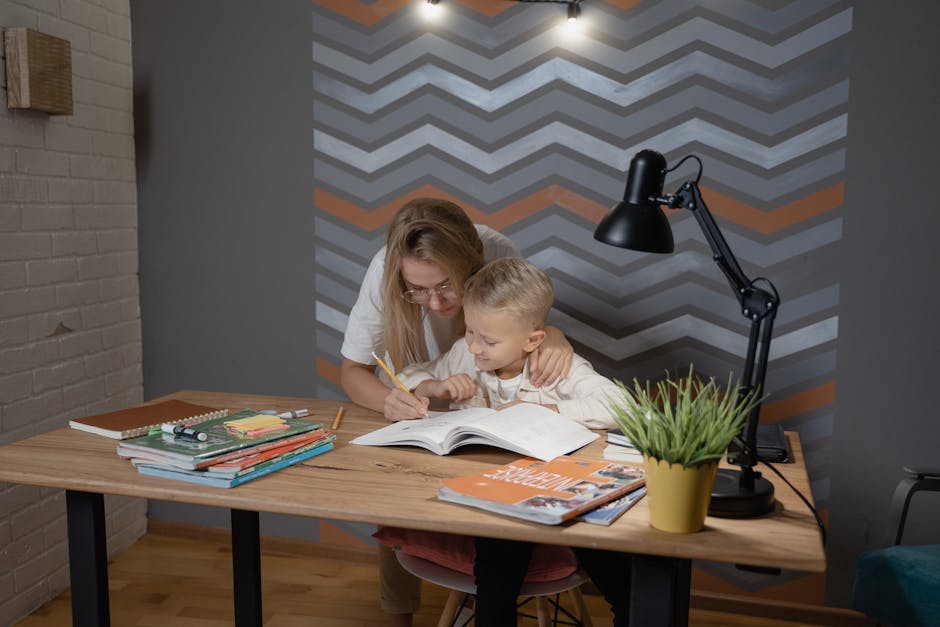Early on, “The Whole-Brain Child: 12 Revolutionary Strategies to Nurture Your Child’s Developing Mind” by Daniel J. Siegel and Tina Payne Bryson proved instrumental. This book’s focus on understanding the developing brain, particularly the interplay between the emotional and rational parts, offered a crucial framework for interpreting my children’s behaviors. It moved beyond simple discipline techniques, illuminating the underlying emotional drivers of tantrums, meltdowns, and defiance. Strategies like “name it to tame it”helping children identify and label their feelingsbecame everyday tools in our household, transforming challenging moments into opportunities for connection and understanding. The book’s clear explanations and practical advice made it easily applicable, even amidst the sleep deprivation and chaos of early parenthood.
As my children grew, my needs as a parent evolved. While Siegel and Bryson’s work focused on emotional regulation, “Positive Discipline: The First Three Years” by Jane Nelsen, Lynn Lott, and H. Stephen Glenn offered a complementary approach to establishing healthy boundaries and fostering self-discipline. This resource, unlike many punitive methods, emphasized collaboration and respect. It highlighted the importance of understanding the child’s perspective and providing them with choices that promote autonomy, rather than simply enforcing obedience. The concept of “misbehavior as a message” resonated deeply, pushing me to understand the underlying needs my children were expressing through their actions, rather than simply reacting to the surface behavior.
Another invaluable resource was “Siblings Without Rivalry: How to Help Your Children Live Together So You Can Live Too” by Adele Faber and Elaine Mazlish. With two children close in age, sibling rivalry was an inevitableand often exhaustingpart of our family life. Faber and Mazlish’s work provided a practical toolbox for navigating conflicts, fostering empathy, and teaching siblings essential social skills. Their emphasis on active listening, empowering children to resolve disputes independently, and avoiding comparisons significantly reduced the friction between my children. The techniques provided not only helped to manage immediate conflicts but also laid a foundation for strong sibling bonds.
Beyond books, I found online resources equally invaluable. Websites like Zero to Three, dedicated to the development of young children, offered evidence-based articles and expert advice on various developmental milestones, sleep, and nutrition. This became a trusted source for credible information, especially in navigating the vast and sometimes conflicting information available online. The site’s focus on developmental appropriateness helped me avoid unrealistic expectations and fostered a more patient and understanding approach.
Podcasts also proved an unexpected source of support and inspiration. Parenting podcasts, featuring interviews with child psychologists, educators, and other parenting experts, offered a diverse range of perspectives and practical strategies. Listening while commuting or during household chores allowed me to engage with these insights organically, making learning feel less like a chore and more like a continuous conversation. This allowed me to learn from a diverse array of approaches and find what resonated most with my own parenting philosophy.
Importantly, my learning wasn’t confined to external resources. Joining a local parent support group was a transformative experience. Sharing challenges and successes with other parents created a strong sense of community and validated many of my experiences. The simple act of knowing I wasn’t alone in facing the complexities of parenthood provided immeasurable relief and encouragement. The diverse perspectives shared within the group also broadened my understanding of different parenting styles and approaches.
The resources mentioned above provided a valuable foundation, but their effectiveness depended on consistent application and adaptation to my children’s unique personalities and needs. Parenting, ultimately, is a journey of ongoing learning and adjustment. It’s a process of constantly refining our approach, drawing upon both theoretical knowledge and practical experience.
In conclusion, my journey through parenthood has been significantly enriched by a combination of insightful books, credible online resources, and the supportive network of fellow parents. While no single resource holds all the answers, these elements provided invaluable guidance, tools, and reassurance, ultimately fostering a stronger connection with my children and a more fulfilling parenting experience. This process of continuous learning, adaptation, and reflection is, in itself, the most valuable resource in the challenging yet incredibly rewarding journey of raising a family.
